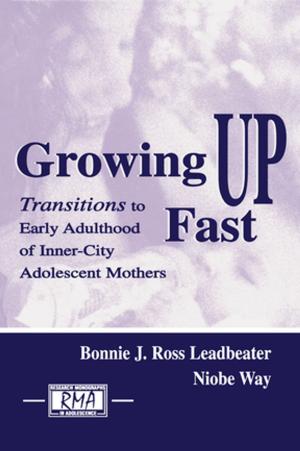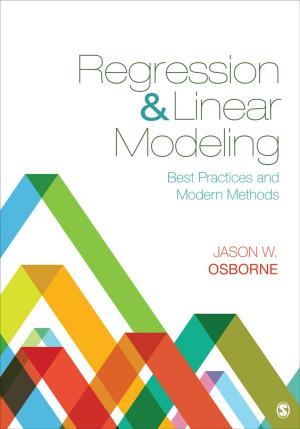Yogachara
The Purity of Direct Experience
Nonfiction, Religion & Spirituality, Philosophy, Eastern, New Age, Mysticism, Health & Well Being, Psychology| Author: | Lee Embrey | ISBN: | 9780998187945 |
| Publisher: | leArtsinc. | Publication: | April 10, 2017 |
| Imprint: | leArtsinc. | Language: | English |
| Author: | Lee Embrey |
| ISBN: | 9780998187945 |
| Publisher: | leArtsinc. |
| Publication: | April 10, 2017 |
| Imprint: | leArtsinc. |
| Language: | English |
Yogachara, The Purity of Direct Experience, by Dr. Lee Embrey, is a modern interpretation of an ancient yogic method long since neglected, yet particularly relevant today. Focused on the ultimate goal of yoga—realization in the divine bliss of Love-Light-Consciousness—this book reinterprets the meaning and practice of the four main types of yoga: Raja (yoga through mind control), Hatha (yoga through bodily postures), Jnana (using thought to transcend thought), and Bhakti (rites, rituals, scriptural recitations, worship and devotional exercises). Taken together, these four are called the school of Yogachara. All four types need to be developed together to produce harmony within the personality. To that end, the author integratesthem with Jungian personality-typology: Raja Yoga links to the Intuitive Type; Jnana Yoga, tothe Thinking Type; Bhakti Yoga, to the Feeling Type; and Hatha Yoga, to the Sensation Type.
Yogachara introduces a wider, deeper menu of ways of thinking than you ordinarily may be familiar with: Associative, Focused, Conceptual and Pre-Conceptual, Cognitive, Reflective, Concrete vs. Symbolic, Contemplative, Creative Thinking and Thinking in “O,” and Spirit Thought (the “Great Thoughts,” big ideas of an epoch).
Experiential as well as discursive, this book offers readers specific, evocative meditations and exercises to experience all four levels comprising Yogachara, addressing: relaxation; breath; extroverted and introverted visions of the universe; opening the heart; sound; connecting with Oneness; light; giving love to your partner; projecting love and gratitude to the world; the yoga of sleep; intuition; and hatha yoga poses).
By combining the best elements of yogic spirituality into a harmonious, easy-to-follow everyday practice, the author seeks to bring this action of revitalization and redefinition to the reader in the form of Yogachara as a “new” yogic system of spiritual practice. And in the end, the book leads us closer to where we most want to be: “Becoming Real.”
Yogachara, The Purity of Direct Experience, by Dr. Lee Embrey, is a modern interpretation of an ancient yogic method long since neglected, yet particularly relevant today. Focused on the ultimate goal of yoga—realization in the divine bliss of Love-Light-Consciousness—this book reinterprets the meaning and practice of the four main types of yoga: Raja (yoga through mind control), Hatha (yoga through bodily postures), Jnana (using thought to transcend thought), and Bhakti (rites, rituals, scriptural recitations, worship and devotional exercises). Taken together, these four are called the school of Yogachara. All four types need to be developed together to produce harmony within the personality. To that end, the author integratesthem with Jungian personality-typology: Raja Yoga links to the Intuitive Type; Jnana Yoga, tothe Thinking Type; Bhakti Yoga, to the Feeling Type; and Hatha Yoga, to the Sensation Type.
Yogachara introduces a wider, deeper menu of ways of thinking than you ordinarily may be familiar with: Associative, Focused, Conceptual and Pre-Conceptual, Cognitive, Reflective, Concrete vs. Symbolic, Contemplative, Creative Thinking and Thinking in “O,” and Spirit Thought (the “Great Thoughts,” big ideas of an epoch).
Experiential as well as discursive, this book offers readers specific, evocative meditations and exercises to experience all four levels comprising Yogachara, addressing: relaxation; breath; extroverted and introverted visions of the universe; opening the heart; sound; connecting with Oneness; light; giving love to your partner; projecting love and gratitude to the world; the yoga of sleep; intuition; and hatha yoga poses).
By combining the best elements of yogic spirituality into a harmonious, easy-to-follow everyday practice, the author seeks to bring this action of revitalization and redefinition to the reader in the form of Yogachara as a “new” yogic system of spiritual practice. And in the end, the book leads us closer to where we most want to be: “Becoming Real.”















